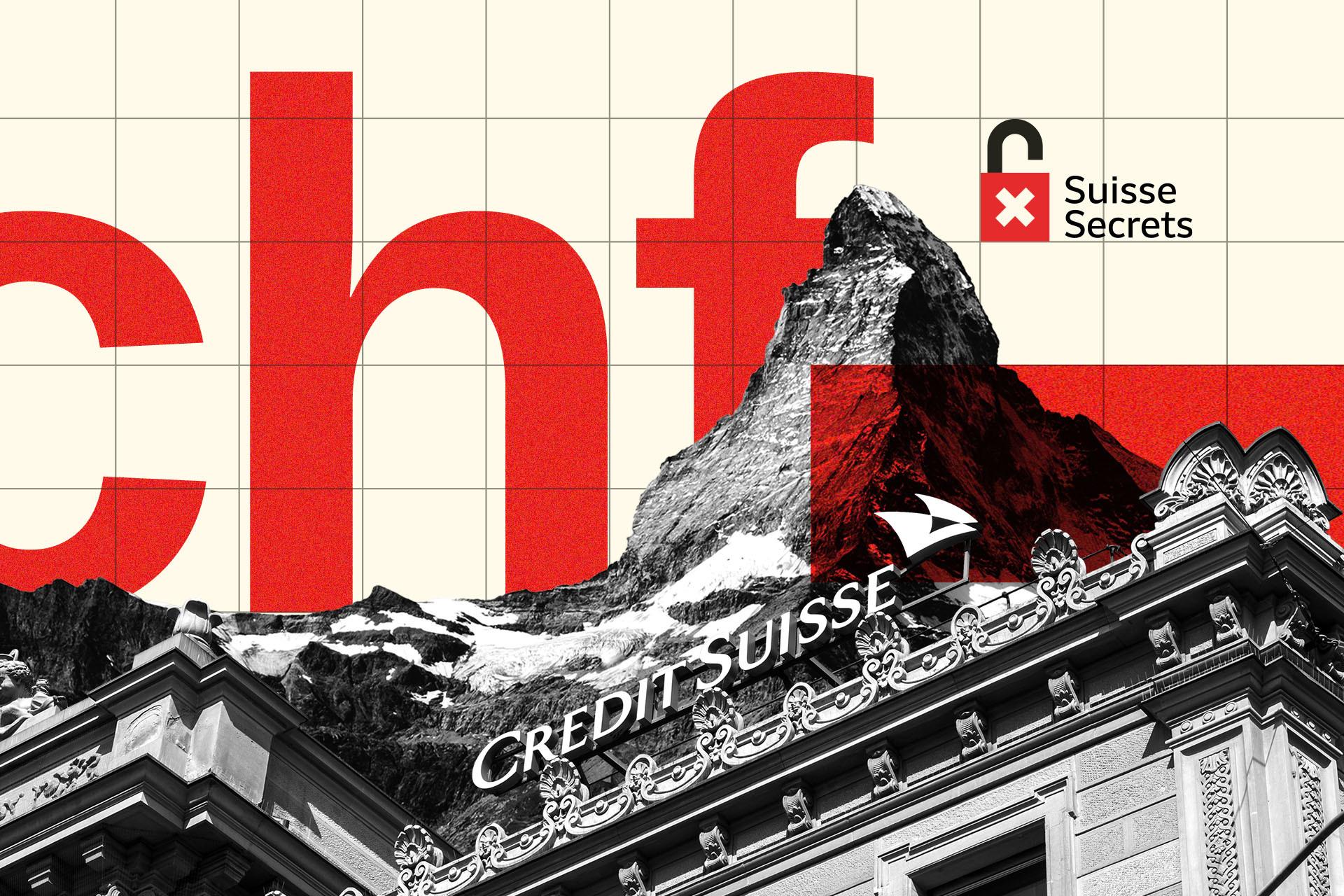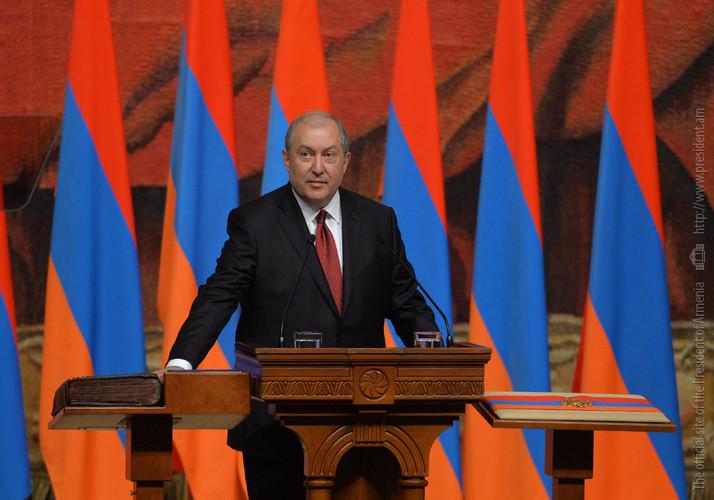
Suisse Secrets. Armen Sarkissian Didn’t Declare Swiss Bank Money
Former Armenian President Armen Sarkissian’s name appears in #SuisseSecrets international journalism investigation
Key findings
- #SuisseSecrets data includes some 500 account holders and some 400 bank accounts connected to Armenia
- Armen Sarkissian and his sister Karine Sargsyan had a bank account in Credit Suisse Bank
- In the few years following the appointment of Armen Sarkissian as Armenia's Ambassador to the United Kingdom, the bank account held more than 10 million Swiss francs
- Armen Sarkissian’s money was not reflected in his financial declarations
SuisseSecrets is a collaborative journalistic investigation based on leaked bank account data.
This information was provided to our partner, the German newspaper Süddeutsche Zeitung, by an anonymous source. The newspaper shared this information with the OCCRP and 48 other media partners from around the world.
The leaked information refers to more than 30,000 account holders and more than 18,000 bank accounts. These accounts were opened from the 1940s until well into the last decade, totaling more than US $100 billion.
More than 160 investigative journalists examined thousands of bank accounts, criminal and court cases, and interviewed various officials and experts.
"I believe that Swiss banking secrecy laws are immoral. The pretext of protecting financial privacy is merely a fig leaf covering the shameful role of Swiss banks as collaborators of tax evaders… This situation enables corruption and starves developing countries of much-needed tax revenue. These countries are the ones that therefore suffer most from Switzerland’s reverse-Robin-Hood stunt." said the anonymous whistleblower who revealed the information.
Despite repeated promises to stamp out dubious funds, Credit Suisse has for decades catered to extremely wealthy criminals, dictators, political actors and sanctioned parties.
In many cases, Credit Suisse should have been aware of its clients who were involved in illegal activities and had a questionable background. A simple Google search would be sufficient to learn about their histories. The bank, however, opened accounts for them.
The number of Armenian citizens, or persons connected with Armenia, appearing in the leaked data reaches 500, and the number of bank accounts - some 400. Among these are former Armenian President Armen Sarkissian and his family members.
Armen Sarkissian and his sister Karine Sargsyan had more than 10 million Swiss francs in their Credit Suisse bank account. This account was opened in 2006 and was serviced by the bank until 2016.
Having an account in a Swiss bank is not a crime. However, the president did not declare the money in that account.
Armen Sarkissian unexpectedly resigned on January 23, 2022. In the days leading up to his resignation, Hetq sent him inquiries about his secret citizenship in St. Kitts and Nevis. We believe this revelation was the reason he resigned.
Armen Sarkissian was appointed Ambassador of the Republic of Armenia to the United Kingdom on September 27, 2013. He was legally obligated to submit a financial declaration from the moment of his appointment.
Analyzing the financial declarations submitted to Armenia’s Corruption Prevention Commission, we see that the former president did not show the above-mentioned funds either in his 2013 declaration upon assuming the post of Ambassador of Armenia to the UK or in his 2014, 2015 and 2016 annual declarations.
According to the Armenian legal regulations in force at that time, specifically the Law on Public Service (adopted May 26,2011) and Government Decision N1819-N (December 15, 2011), Sarkissian declared €8 million. Later, in his annual declarations, this €8 million gradually reduced.
Hetq, together with its international partners, addressed a request to Armen Sarkissian, asking him to comment on the source of this money and why he didn’t declare it.
Sarkissian’s reply was curt, characterizing our obtaining of his bank account information as illegal.
“...accessing details of someone's private bank account, as you have, is wrong and unlawful – all over the world. It is an infringement of privacy and breach of confidentiality.” Sarkissian replied.
While regarding our inquiries inappropriate, Sarkissian nevertheless decided to answer our questions and provide an explanation.
In his explanation, Sarkissian claimed that in the years in question, he served as an ambassador on a pro-bono (unpaid) basis and that he even spent money from his own pocket to establish Armenia’s Embassy in the United Kingdom.
"It was not certain that the rules obliging officials to declare their interests applied in such circumstances and, in fact, others serving on a pro bono basis did not make any declarations”,- Sarkissian wrote, citing the example of Charles Aznavour. Sarkissian replied that he nevertheless decided to submit financial declarations.
"They were not electronic at the time and did not oblige me to declare specific banks accounts, only my cash holdings which I declared every year." wrote Sarkissian.
Here, it is necessary to mention that Armen Sarkissian has a history of not submitting financial declarations.
Despite Sarkissian’s above-mentioned assertion that he declared his assets annually, in 2016 Hetq wrote that he had not submitted his financial disclosures for several years. It was only after notices made by Armenia’s Ethics Committee and various press reports that Sarkissian, in 2017, finally submitted his 2013 disclosure (at the time he assumed the post of ambassador) and his annual 2014, 2015 and 2016 disclosures.
Sarkissian noted in his explanation: “My declarations were accompanied on two occasions by a letter that said that it was not certain that I had to make the declaration but if the Ethics Committee thought I should they could open the envelope that accompanied my letter.”
Hetq applied to the Corruption Prevention Commission, asking if it had examined Sarkissian’s declarations and whether it could clarify if Sarkissian had declared the 10 million Swiss francs.
The commission confirmed that Sarkissian had declared only €8 million in the declaration upon assuming the post of ambassador, without mentioning whether it was kept in cash or in a bank account. In his subsequent annual declarations, Sarkissian did not declare any Swiss francs.
Sarkissian’s assertion that he was obliged to show only the cash amount is shrewd, because in 2013-2018 the former official was not even obliged to indicate the type of currency holding (cash or non-cash, bank account funds).
Thus, we do not know whether the €8 million he declared was in the form of cash or something else. He was not obliged to distinguish in the disclosure. But Sarkissian was obliged to declare his assets and specify the currency. The question arises as to why he chose to declare €8 million but did not declare the 10 million Swiss francs we know about.
In addition to the mentioned account, Sarkissian had three accounts in Credit Suisse. We do not go into details about them since two of them were closed a few months before Sarkissian took office, and the other much earlier.
In his explanation, Sarkissian also mentioned that the accounts were closed before his obligation to disclose information about them. However, the account he held with his sister, Karine Sargsyan, was closed in 2016. At the time, the law obliged him to declare his assets, which he did only several years later, and afterwards as president.
The Corruption Prevention Commission informed us that Sarkissian must still submit the declaration of his financial means (in a new format, in more detail, including the types of assets) as of the time of his resignation and that it will publish its findings after carefully comparing the data.
Hetq will soon publish the stories of a few of the account holders who appeared in #SuisseSecrets data.
List of partners who worked on Suisse Secrets project
Africa Uncensored (Kenya) | Alqatiba.com (Tunisia) | Armando.info (Venezuela) | Center for Investigative Reporting (Bosnia and Herzegovina) | Confluence Media (India) | Depeches du Mali (Mali) | Diario Rombe (Equatorial Guinea) | Efecto Cocuyo (Venezuela) | L'Evénement (Niger) | Expresso (Portugal) | Fact Focus (Pakistan) | The Guardian (United Kingdom) | Hetq (Armenia) | Impact.sn (Senegal) | Infobae (Argentina) | Infolibre (Spain) | Interferencia de Radioemisoras UCR (Costa Rica) | Investico (Netherlands) | Investigative Reporting Lab (North Macedonia) | IrpiMedia (Italy) | Kloop (Kyrgyzstan) | KRIK (Serbia) | La Nación (Argentina) | The Namibian (Namibia) | Miami Herald (United States)| Le Monde (France) | The New York Times (United States) | The News (Pakistan) | NewsHawks (Zimbabwe) | Norddeutscher Rundfunk (Germany) | OCCRP (Global) | Piaui (Brazil) | Prachatai (Thailand) | Premium Times (Nigeria) | Profil (Austria) | Reporter.lu (Luxembourg) | Shomrim (Israel) | Slidstvo.info (Ukraine) | Le Soir (Belgium) | La Stampa (Italy) | Süddeutsche Zeitung (Germany) | Sveriges Television (Sweden) | Trece Costa Rica Noticias (Costa Rica) | Turkmen News (Turkmenistan) | Twala.info (Algeria) | Verdade (Mozambique) | Vlast (Kazakhstan) | Westdeutscher Rundfunk (Germany)
 Videos
Videos Photos
Photos

Write a comment